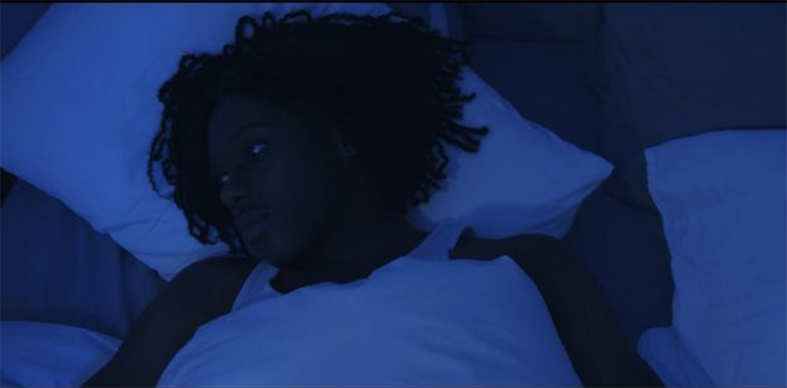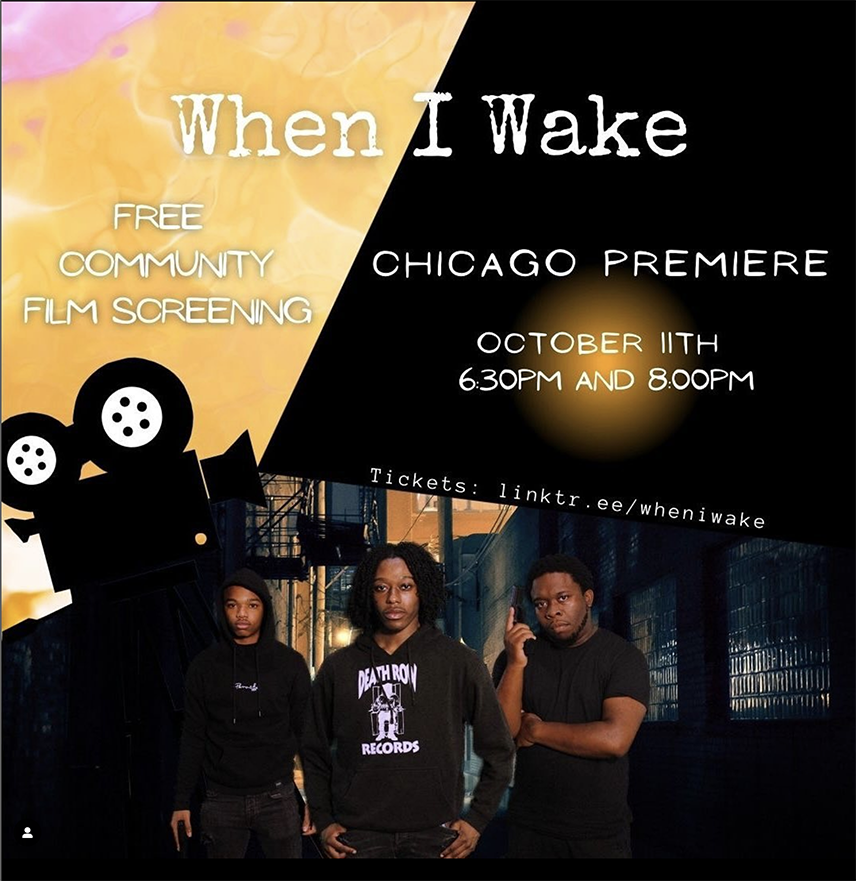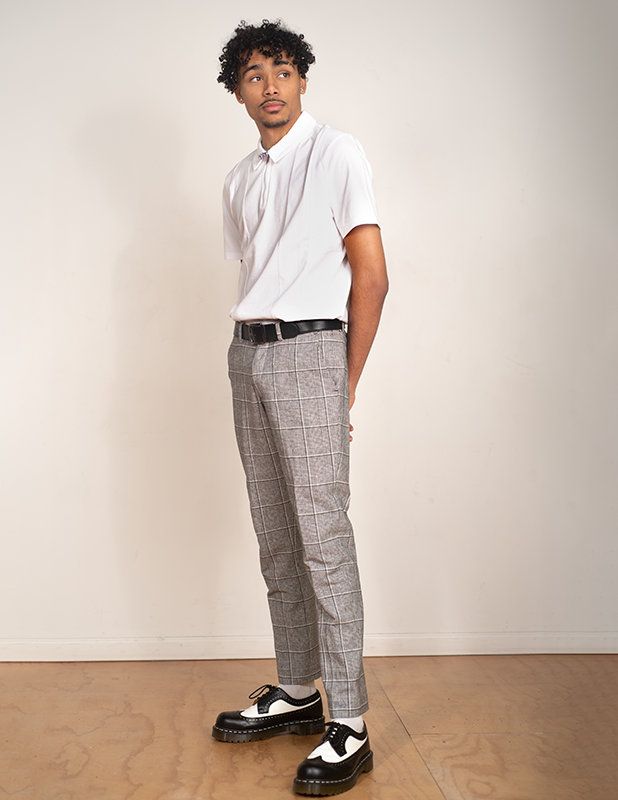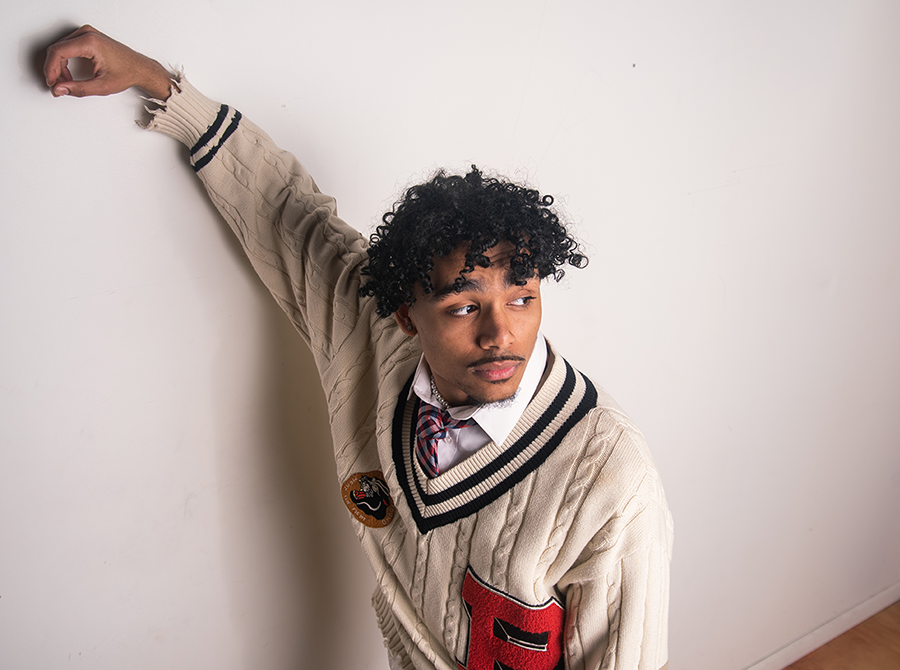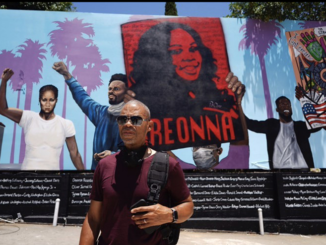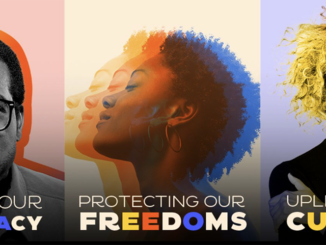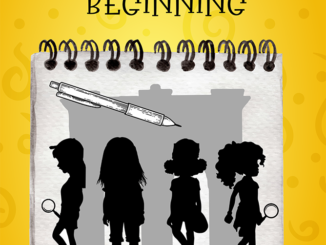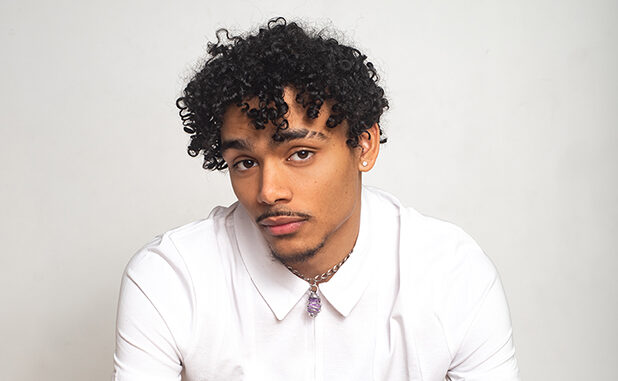
By Staff
Tell us about your education.
I attended the Illustrious Howard University in Washington D.C. where I majored in Television and Film and minored in Playwriting. During my Junior year, I was fortunate enough to be selected into ‘Cohort 2’ of the Howard Entertainment program where I took courses in partnership with Amazon Studios. This program served as a major introduction into the entertainment industry that allowed me to build a network, connecting me with many extraordinary and talented individuals. In 2022, I was named one of three HBCU filmmakers of the year by the National Black Movie Association.
How has college prepared you for the world?
When I first arrived at Howard, I was uncertain about my future, I lacked confidence in a major way. I knew I wanted to be a film director but coming out of Chicago’s Public Schooling system telling people that was almost the equivalent of telling people I wanted to be a unicorn. I still remember my first day on campus, attending the pinning ceremony where I was officially anointed as a student. The woman who put my pin on asked me what I wanted to do with my life. I responded “Be a film Director.” She replied, “Like Jordan Peele?” I responded with a hesitant “I guess so…Maybe something like that”, and she froze, looked me sternly in the eyes and told me “You should know so because you’re a Bison now. If you want to direct movies you’ll be directing movies.” This was a powerful moment for me which in turn reflected my experience at Howard as a whole. The belief instilled in me by my professors as well as my peers built an unwavering amount of confidence within me year after year. There’s a stereotype about Howard Students being “bougie” or “stuck up,” and this notion was echoed by a neighbor who told my father “You gotta be careful sending your kid to Howard, them boys come out of that school thinking they’re kings” and my father responded with, “What’s wrong with that?” I can now say there was a level of truth to that statement and I graduated feeling as though I could accomplish anything. Howard allowed me to tap into my potential, freeing me from the shackles of limiting beliefs, and revealed pathways to me I never knew existed.
Tell us about your film.
When I Wake is a vibrant and poetic 40 minute short with elements of surrealism that explores the complexities of grief in Black Boys and Men on the Southside of Chicago. The film follows high schooler, Amiri Wright, after he loses his best friend, Malachi at the hands of a gunman. He mourns the death of his friend and experiences the stages of grief through dreams that surround the event. When it is further revealed who committed the murder, Amiri and Malachi’s mutual friend, Khalil sets out to get revenge. Battling with his grief Amiri is faced with a question, what’s the proper way to deal with loss?
I originally conceptualized the film in 2019, after witnessing a shooting while out with my little brother. My brother is ten years younger than me and seeing the fear in his eyes was something that stuck with me for days after the event. Thoughts of what could’ve happened to him or me lingered until I turned to poetry to express these thoughts and feelings. A couple months later, I reached out to Brianna Mottey, a writer and close friend of mine with ideas of expanding this experience into a story, and she happily took on the challenge of writing the script which was five pages when we began.
The summer of 2019 we casted and geared up to shoot the film, everything went horribly wrong with production and we ended up scrapping the footage we had. I spent the following year planning on how we could improve. The summer of 2020 mid pandemic we prepared to shoot once again, this time with an extended script of 50 pages. The production was a large endeavor with numerous locations and cast members. Fortunately, we were able to capture everything and production ran smoothly. However, editing the film in post production we realized it simply wasn’t good enough. We needed better equipment and more experience to execute our vision the way we intended. I spent the following year on sets teaching myself everything I could about equipment and dove deeper into how to perfect the production process with minimal assets. The summer of 2021, the script was condensed into 30 pages and for this production we were able to pool together 10 thousands dollars. The money came from my own pockets, generous family members, and maxing out a credit card which wasn’t the wisest idea, but with a larger budget we were set to shoot again, and it was disastrous. With things going wrong at every turn, we persisted, and completed the project. During the post production process one of my best friends, Jonathan Young, passed and the project suddenly took on a whole new meaning for me. The editing process became therapeutic as I grieved and a few months later, we debuted the film at Amazon Studios in LA to a standing ovation. Since then we have screened the film in Chicago where we were able to raise $3000 in donations, and have received 5 festival selections as of January 2023.
What inspires you to work in such a competitive industry like entertainment?
Film is my first love. I still remember discovering iMovie at 8 years old and learning that you could make movies for a living. There’s never been a moment in time where I’ve considered any other path. As I’ve grown, that passion turned into purpose as I began to understand how film and mass media influences the masses. From the things we like, to the ways we behave, and view the world, media is a reflection of us, but as many Black people will tell you, there is a large discrepancy in what type of stories are being told. I’ve come to realize how many stereotypes and harmful rhetorics are being promoted by the media and made it a goal of mine to alter that landscape. I think the industry is only competitive if you view it as such. Oftentimes we put this notion out there that we’re competing with people or it’s a race to the top and that type of mentality can be very discouraging and anxiety inducing. Instead of looking around and worrying about what the next person is doing I look internally. I view things as a competition with myself. What goals do I have set forth for myself on any given day and how quickly can I complete those? That mentality allows me to block out the noise and stay laser focused on what I’m building.
What keeps you motivated as you produce content?
On a grand level, it’s been community. My first film was in some regards a love letter to the Southside of Chicago. The majority of my work is community oriented as that’s the primary audience I hope my work speaks to and moves. The thoughts of the impact my work could potentially have on my community is what keeps me going. On a personal level, my production partner, Brianna Mottey keeps me in check. One overarching lesson I’ve learned in the past few months is that you can’t succeed professionally if you aren’t right within. Working alongside Brianna has allowed us to hold each other accountable and support one another, emotionally and creatively as we work towards our collective goals.
What has been the most challenging aspect of producing a movie?
As many independent filmmakers will tell you the hardest part of producing a movie is typically financing it. Surprisingly for this film the money seemed to always be there when we needed it, but it didn’t come without sacrifice. I maxed out a credit card in the post production process and poured literally every dime I had into making this come to life. But I knew financing was an inevitable challenge I was going to face. What I didn’t anticipate was the amount of adversity we had to overcome during production. When I Wake was virtually shot with little to no crew. There were days I was on set by myself with the actors operating the camera, audio, and directing simultaneously because we didn’t have access to a budget to hire a larger crew. This was exhausting especially when shoots were sometimes 20 hours. My car also broke down twice and we had a number of locations & actors fall through. Issues like these are the nature of producing a film, however it’s a lot more challenging when you’re the one in charge of overseeing the contingency plan while still worrying about how you’re going to compose the film.
Where do you see your career in the next five years?
In 2019 I sat down and wrote out a 10 year plan that ends with me directing a feature film that’ll premiere in theaters. I’m currently ahead of schedule and god willing, that fortune will continue. Ideally, in the next 5 years my team and I will have won a major festival such as Sundance or Tribeca, and move into pre-production on that feature I’ve been so passionately coveting. I know myself and the creative team I surround myself with are fully capable of creating something magical. We simply need the opportunity and resources, and I’m excited and grateful to see what the future holds.
About
Julian Thedford is an Award Winning Director, DP, Producer and Editor, known for his vibrant and poetic approach with a penchant for elements of surrealism. Originally from the Southside of Chicago, his work is committed to uplifting the voices and experiences of his community. Accustomed to working with micro-budgets and limited resources the Directors debut film When I Wake was captured entirely by a 2 person Crew, with Julian some days Directing, while operating the camera and audio equipment simultaneously.
– IMDb Mini Biography By: Julian Thedford




